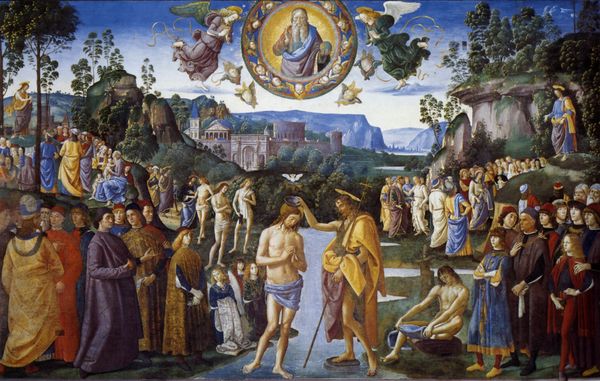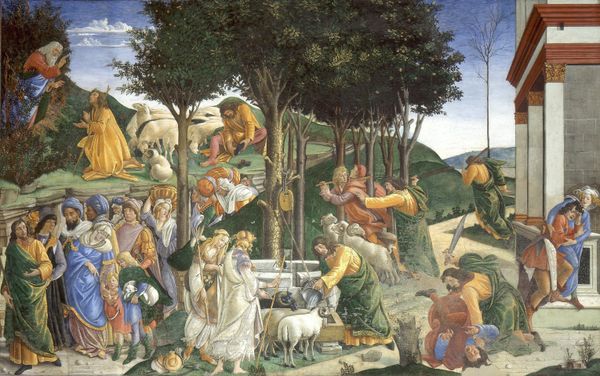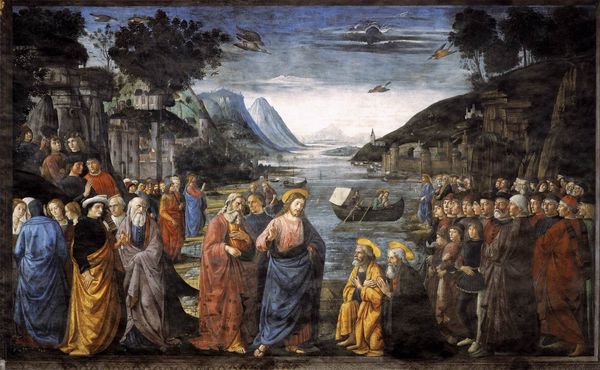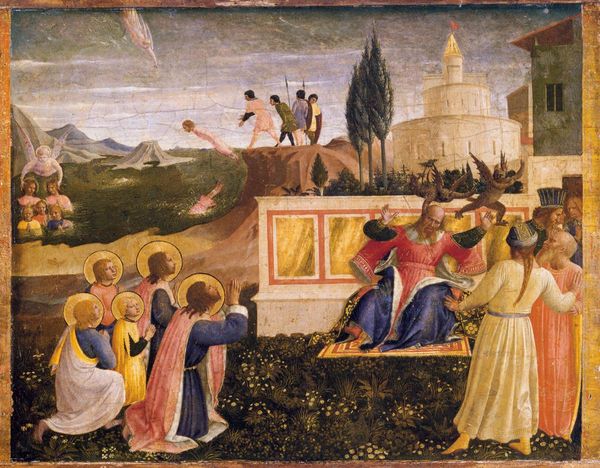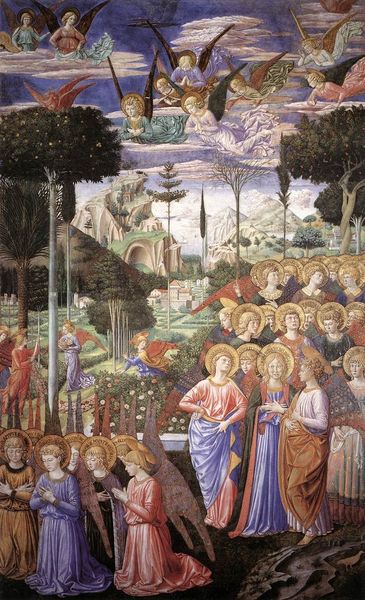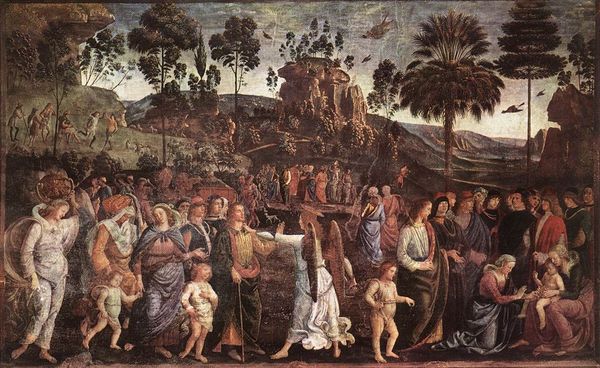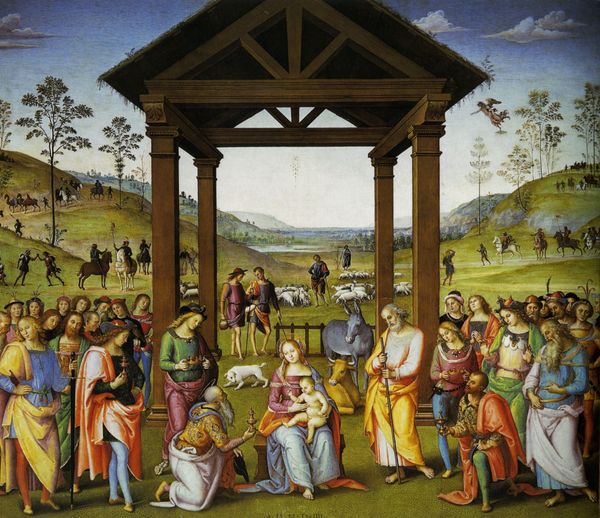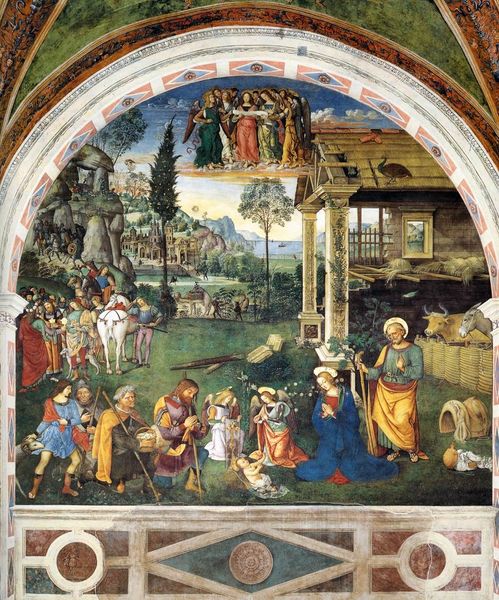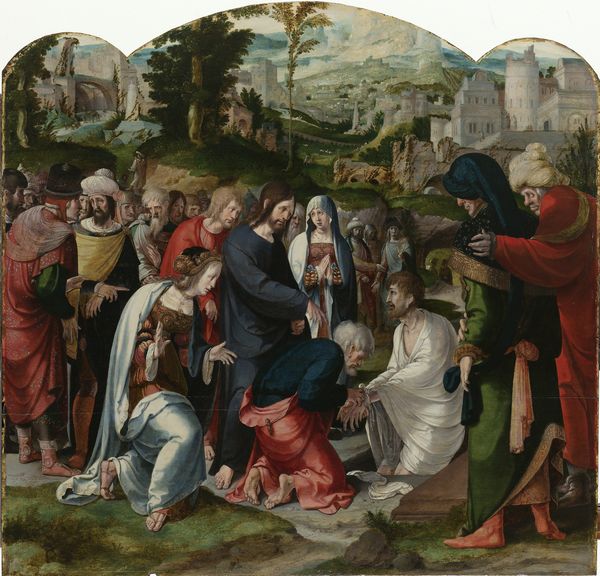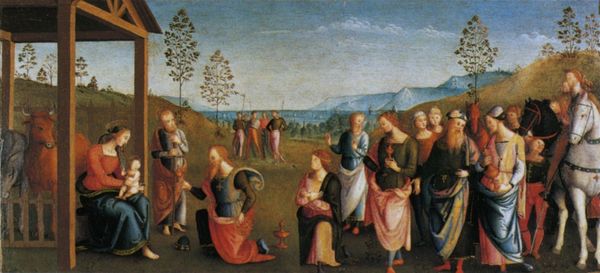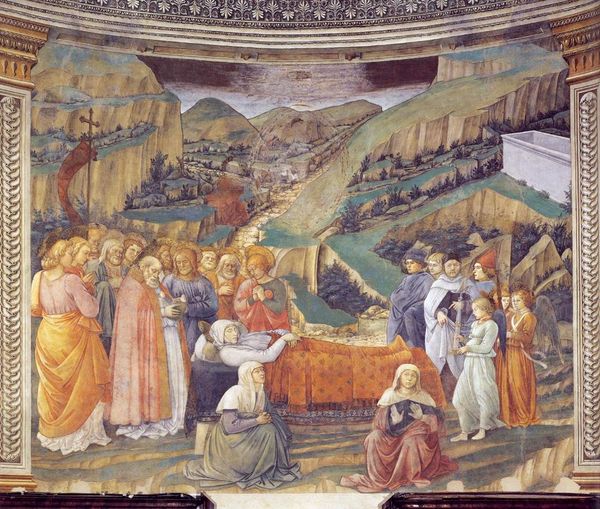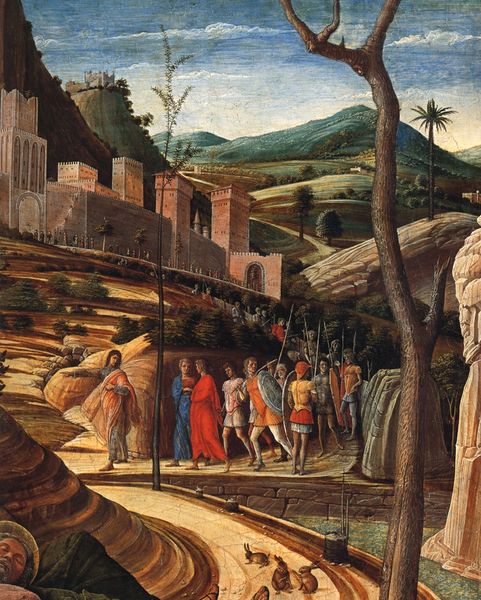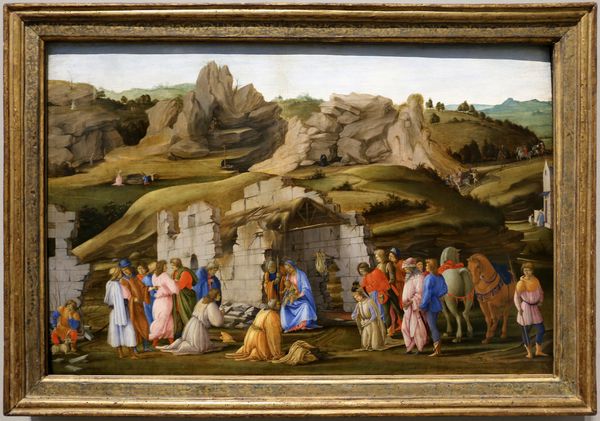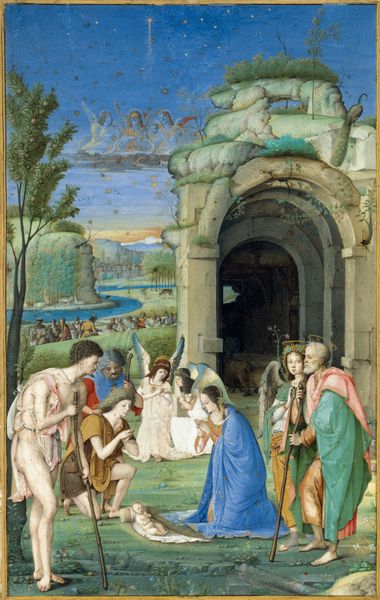Journey of Moses and circumcision of her second child 1483
🔒Audio guide available with collection purchase
tempera, painting, fresco
#
high-renaissance
#
narrative-art
#
tempera
#
painting
#
landscape
#
perspective
#
figuration
#
fresco
#
oil painting
#
christianity
#
mythology
#
history-painting
#
academic-art
#
italian-renaissance
#
early-renaissance
Copyright: Public domain
Comments
No comments
Be the first to comment and join the conversation on the ultimate creative platform.

